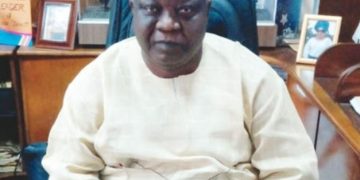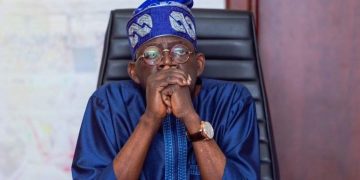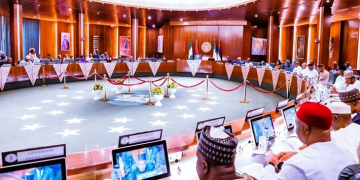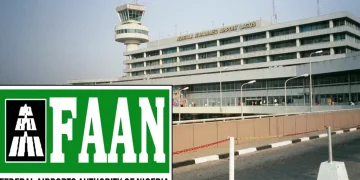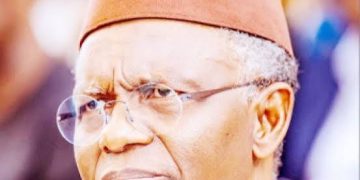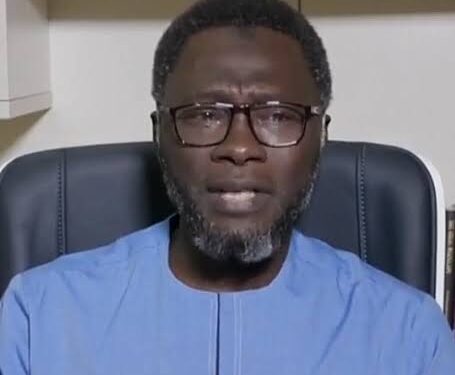By Ussiju Medaner
Today Nigeria, and as usual, we are misrepresenting what our problems are and what must be done to get out of them. Our grand, foremost problem is corruption; and the same has infected every sector of our system inclusive of the national security system. The major plague that has eaten up the capacity of Nigeria to run a virile police force is the same corruption. The inability to effectively populate the force, the continued failure to provide suitable welfare packages for the personnel and the nation’s inability to effectively equip and provide arms to the police institution invariably takes us down and back to the endemic corruption eating up the country and the echelon of the police administration in the country. Rather than begin mulling the very ill-conceived state policing, we should return to the drawing board to restructure our police force to instil effectiveness and efficiency in the delivery of its mandate.
Unfortunately, rather than addressing the penitent issues that have continued to undermine the operation of the Police Force in the country, we have chosen the emotional call for state police as the way out. This I found myself in between accepting and rejecting. But for the Nigeria case, I will without mincing words state that the country as presently constituted is not ripe for such a development.
Absolutely, I am an ardent believer of true federalism; and yes, with true federalism should come the presence of state-controlled police forces. Of course, that is the practice in the United States and other strong federations. But when it comes to us thinking globally and acting locally, our peculiar antecedents have shown everywhere evidence of glaring abuse of the system if allowed.
How can we even attempt to consider such a delicate issue with huge counter-security consequences for the country? Take the local government administration system, for instance, that has gone completely under, with severe consequences for the nation’s development, because the state governors have unanimously decided they must have absolute control over constitutionally independent institutions at both state and local government levels. No single state house of assembly is independent in the country; they are all puppets of their respective puppeteers, the state governors. So eventually, the state governors would decide how powerful the state police would be, and would literally fashion the act establishing the same.
And we will eventually create a weapon for the governors to suppress the opposition. Election times would be worse because whoever is not on the side of the governor would become an enemy of the state police, to be hounded and cut to pieces. We wouldn’t need a soothsayer to know that just like the local government chairmen, or caretakers as the case may be, and the entire members of the houses of assembly, the police leadership and operations would be at the beck and call of the state governors in a nation where power is grossly abused.
Then, how would the same state governors who are known for salary non-payment add the salary burden of the state police workforce to its obvious incapacity? It is a fact that the state police under state administration would fare worse than anything we have ever experienced; and in no distant time, we would begin to record incidents of police embarking on strike action and gross extortion of the public beyond whatever we are seeing right now.
Have we stopped to ask ourselves how state police would affect the ever-growing ethnicity challenge in the country? For example, how would a Lagos state police populated largely by indigenous citizens of Lagos state respond to the ongoing but bottled problem of “Lagos is no man’s land”? Same goes to Anambra state, or are we going to deceive ourselves that the state government would legislate open engagement across tribes into the state police? Definitely no! It would take us to the point where all non-indigenes would become non-recognised foreigners and must be quiet or else clamped down upon by the police; including during elections.
It is a statement of fact that the country currently suffers ineffective and inefficient policing, for so many reasons. It is also a statement of fact that there is an urgent need to address the myriad of challenges facing the Nigeria Police and to develop a strong and effective police force and policing formation for the country. Over the years, the overbearing need for a total rejigging of the Nigeria Police force has been on the burner. That need and continued discussion around it, unfortunately, ly has not materialised to anything significant and substantial for the country. A couple of times, and again now, instead of concentrating on what needs to be done to effectively police the country, we are succumbing to the emotional pressure of establishing state police to fight insecurity in the country.
Eventually, the solution would be far away from the consideration for state or regional policing; and would revolve around revamping the Nigeria Police as controlled by the federal government. The focus would have to be on creating a compromise between recruitment and police size requirements of the country, quality training and equipping police officers and quality welfare of police in the country. When these three are done, all calls for state policing would be literally dropped.
What we need is effective policing, the ideal police to citizen ratio is about 4 officers for every 1,000 residents, according to a global meeting of Police Chiefs; given 4,000 officers for every million residents. With a current Police Force strength of just over 370,000 in the engagement of the Nigeria Police, there is the obvious shortage of approximately 550,000 police officers for the country. That is our challenge and that is what we need to address; the shortage in the needed number, resulting in the gross ineffectiveness of the force.
To cover for the needed manpower, the Police Force would have to recruit approximately 15,000 officers per state of the federation and FCT. And at the same time, the quality of these recruitments would speak volumes to the seriousness of our readiness for change. The era of recruiting from questionable characters should be over; we should be looking at the tons of qualified unemployed youths roaming the streets for engagements in the force. Employing 550,000 duly prepared unemployed into the Police force would be solving many problems simultaneously for the country, beyond bringing onboard teachable and presentable officers to the fore.
Another route to an effective population of the police force under the control of the federal government would be a possible merger of the Police force and the Civil Defense Corps into one single policing entity for the country.
And then, the current lot of untrained and ill-equipped police officers is a major hindrance to the much-needed effective policing; we must intentionally remove illiteracy from the system, by training and equipping the police officers to meet up with global policing standards. Effective training in modern policing with the necessary equipment must be embarked upon. Per state, 500 officers should be trained as intelligence gathering officers; and about 1,000 officers for crime control and civil/ community policing.
When we boast at each state level of effective numbering of officers who are fully trained and equipped to combat crimes and criminalities from all known perspectives, then we will begin to see less insecurity across the country. Policing has gone beyond mere wearing uniform and carrying firearms; contemporary policing is a combination of art and science of its own; a combination of the physical combat capacity, and the psychological intelligence to recognise effective crime-combating procedures per time and situation. This should result in an all-round effective police force; officers’ are trained and fully equipped with sophisticated arms and ammunition, including mobility at all times.
The training would also include civil relationship procedures. We should be seeing a more citizen-friendly police force in practice, and a force that in reality is able to build a sustainable working relationship with the citizens so that needed information would flow freely without fear of negative consequences from the populace about crimes and criminals. This would require increasing technology adoption, including the full introduction of mandatory body cam gears for all officers at all times, to ensure real-time records and access to their interactions with both criminals and the populace.
When these are done, one more thing would have to be extensively discussed and settled if we are serious about having a revamped police force for the country; and that would be the welfare of police officers. The only reason why police officers would go down so low to forcefully obtain bribes and settlements on the roads and subvert justice to enrich themselves is because the system as it is currently designed has no substantive plan for the welfare of the officers. The monthly salary of police officers is unbelievably too low compared with the high expectations of the job. The salary of an average police officer should not be less than Four hundred thousand naira minus hazards and other allowances.
The absence of a recognised substantive insurance scheme for the police institution is a factor that must be addressed. Every officer must go out every morning knowing that if anything happens to them in the line of duty, their family will be in safe hands. It is unacceptable that it is the Police hierarchy or the government that would have to decide to give the dependents of affected officers something, No. For the hazard of the job, it must be legislated, and a certainty, and every officer must know exactly what happens if anything happens to him or her in the line of active service.
When the officers are well paid, well trained and equipped, and are sure their families would be safe financially in case of any form of accident, we will see a new and vibrant police force and officers emerging. That is all we need to protect Nigerians.
We have to, and we must let go of all clamour for state policing as it won’t go down well with our system. Instead, we must clamour for a well-managed police force at the centre that is better populated and well-cared for, in order to fulfil its constitutional mandates.
God Bless the Federal Republic of Nigeria!




